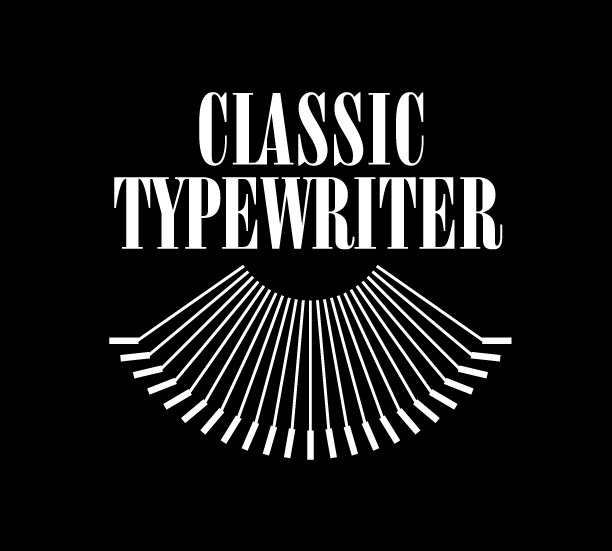The Architect of Power: Inside Robert Caro's Extraordinary Writing Process
Robert Caro with his Smith Corona Electric Typewriter
Robert Caro, one of America's most renowned biographers, employs a meticulous and time-consuming writing method that has produced some of the most comprehensive and insightful works of political biography in recent history. His approach is characterized by exhaustive research, careful outlining, and multiple drafts.
Research and Preparation
Caro's writing process begins with extensive research:
He follows the principle of "Turn every page," never assuming anything and examining every possible source of information1.
He conducts hundreds of interviews, often speaking to the same people multiple times to confirm details and deepen insights8.
Caro immerses himself in his subject's environment, even moving to locations like Texas to better understand the context of his subject's life4.
Outlining and Planning
Before writing, Caro creates a detailed outline:
He begins by distilling the entire book into 1-3 paragraphs, a process that can take weeks3.
He then expands this into a comprehensive outline for the whole book, with individual outlines for each chapter3.
Caro uses a 22-foot corkboard to visualize his outline, which helps him "see the whole book right down to the last line"5.
Writing Process
Caro's writing method is deliberate and methodical:
He writes his first drafts longhand on white legal pads with narrow lines57.
After several handwritten drafts, he types the manuscript on a Smith Corona Electra 210 typewriter57.
Caro aims for 1,000 words per day, tracking his progress meticulously6.
He rewrites extensively, often producing multiple drafts before submitting for publication4.
Editing and Refining
The editing process is equally rigorous:
Caro edits his work using red 314 Berol Draughting pencils5.
He creates detailed to-do lists for revisions, including reminders about writing style and content6.
Even at the proof stage, Caro continues to edit and refine his work8.
Writing Environment
Caro maintains a structured writing environment:
He writes in solitude, wearing a suit and tie to maintain a professional mindset2.
Interruptions are considered highly disruptive to his concentration7.
In the past, he has written in secluded locations, including a shack in the woods5.
Robert Caro's writing method, while time-consuming, has resulted in deeply researched and vividly written biographies that offer profound insights into the nature of political power. His commitment to thorough research, meticulous outlining, and extensive rewriting exemplifies a level of dedication that has set a high standard in the field of biography and historical writing.
The Meticulous Writing Method of Robert Caro: A Deep Dive
Robert Caro, the Pulitzer Prize-winning author, is renowned for his comprehensive biographies that offer unparalleled insights into political power. His writing method, as painstaking as it is effective, has produced some of the most acclaimed works of non-fiction in recent decades. Let's explore the intricate process that has made Caro a legend in the world of biographical writing.
The Research Phase: Turning Every Page
Caro's approach to research is nothing short of exhaustive. His mantra, "Turn every page," encapsulates his commitment to leaving no stone unturned. This phase involves:
Conducting hundreds of interviews, often revisiting sources multiple times
Immersing himself in his subject's environment (he famously moved to Texas while researching Lyndon B. Johnson)
Examining every possible document and source of information
Robert Caro at his desk, surrounded by documents
The Art of Outlining
Before putting pen to paper, Caro engages in a meticulous outlining process:
Distilling the entire book into 1-3 paragraphs (a process that can take weeks)
Expanding this into a comprehensive outline for the whole book
Creating individual outlines for each chapter
A unique aspect of Caro's method is his use of a 22-foot corkboard to visualize his outline, allowing him to "see the whole book right down to the last line".
The Writing Process: Precision and Persistence
Caro's writing routine is as structured as it is productive:
First drafts are written longhand on white legal pads with narrow lines
Subsequent drafts are typed on a Smith Corona Electra 210 typewriter
He aims for 1,000 words per day, meticulously tracking his progress
Multiple drafts are produced before submission for publication
Fun fact: Caro writes in solitude, wearing a suit and tie to maintain a professional mindset.
Editing: The Red Pencil Method
The editing process is equally rigorous:
Caro uses red 314 Berol Draughting pencils for editing
He creates detailed to-do lists for revisions
Even at the proof stage, he continues to refine his work
Robert Caro's editing pencils and notes
Robert Caro's Bibliography
Caro's method has produced a small but mighty collection of works:
The Power Broker: Robert Moses and the Fall of New York (1974)
The Years of Lyndon Johnson: The Path to Power (1982)
The Years of Lyndon Johnson: Means of Ascent (1990)
The Years of Lyndon Johnson: Master of the Senate (2002)
The Years of Lyndon Johnson: The Passage of Power (2012)
Working (2019)
Awards and Recognition
Caro's dedication to his craft has earned him numerous accolades:
Two Pulitzer Prizes (1975, 2003)
Two National Book Awards (1975, 2003)
National Humanities Medal (2010)
National Book Critics Circle Award (2002, 2012)
Gold Medal in Biography from the American Academy of Arts and Letters (1984)
Robert Caro's writing method, while time-consuming, has resulted in deeply researched and vividly written biographies that offer profound insights into the nature of political power. His commitment to thorough research, meticulous outlining, and extensive rewriting exemplifies a level of dedication that has set a high standard in the field of biography and historical writing.
Caro, Robert A. (2019). Working: Researching, Interviewing, Writing. Alfred A. Knopf. Caro, Robert A. (2019). Working: Researching, Interviewing, Writing. Alfred A. Knopf. Caro, Robert A. (2019). Working: Researching, Interviewing, Writing. Alfred A. Knopf.
Citations:
https://writingcooperative.com/the-writing-principles-of-robert-a-caro-87c82797bc50
https://perell.com/essay/the-magic-binoculars-robert-caros-writing-secrets/
https://sites.lsa.umich.edu/mqr/2016/04/narrative-power-on-the-writings-of-robert-caro/
https://every.to/p/note-taking-lessons-from-america-s-greatest-biographer
https://jillianhess.substack.com/p/re-noted-robert-caros-cork-board
https://www.nypl.org/blog/2019/05/17/how-robert-caro-writes-about-power-and-powerless-ep-266
https://www.outlinersoftware.com/topics/viewt/8650/0/more-on-robert-caros-research-writing-methods
https://plutarch.substack.com/p/robert-caro-a-life-long-pursuit-of
https://chireviewofbooks.com/2019/04/11/robert-caro-keeps-writing-into-the-sunset-with-working/

